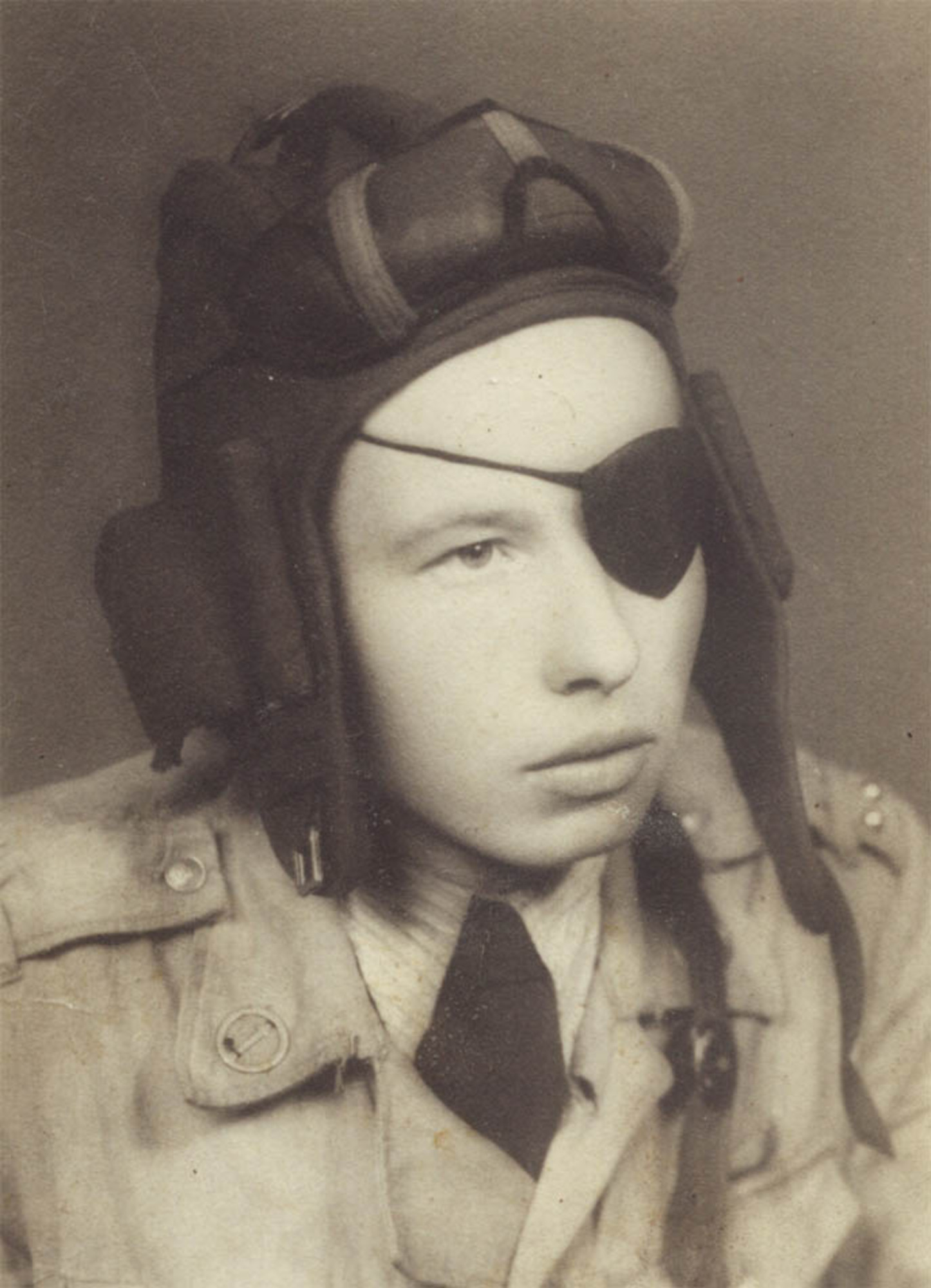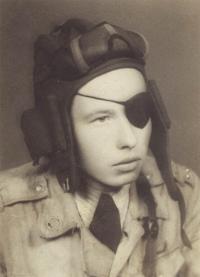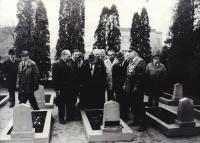That was interesting. I was in Kharkov as a worker. We worked there for one company and lived near an airfield there. Our neighbours were German recon pilots. They flew on missions to the rear of the enemy and on the front to take reconnaissance photographs. They even brought back a little bear from some place in the Caucasus mountains. They kept it in the garden. We looked at them from the other side, and I have to say, we cooked our meals ourselves, the food we received was not bad, sometimes they even gave us meat. The company was taking care of us. From this point of view, it was great in Kharkov. But the beginnings were awfully difficult and hungry…in winter. This was the time of Stalingrad, freezing terribly…it was horrible. I had a dog there. I found some stray dog, which probably got lost on the front. Somehow I lured him to me, and took him home and gave him food. He began to like me, and got better. Then a certain captain pilot took the dog away from me, claiming that this was an army dog and did not belong to me. He took the dog away, but one day the dog came back, he escaped and so the captain did not want him anymore. The dog stayed with me in my room, and there were only two of us, me and a guy named Straka, he was also from Lanžhot. And suddenly we hear some knocking on the door. The dog began to bark furiously, and Straka called out: ´OK, come in.´ But he probably could not hear it, so I ordered the dog - I called him Lux – to sit down and be quiet, and I went to open the door. There was a German corporal from the anti-aircraft team. He was not a pilot, but the German anti-aircraft guys wore the same uniforms. They served at airports and did the servicing of cannons, ground equipment, and so on. I thought, what the hell he wants. And Straka said out loud in Czech: ´What does that idiot want?´ He was a corporal. And when he heard what Straka just said, he exclaimed: ´Blast it, guys, you are Czechs?´ – ´Sure we are. We are from Moravia, we are Moravians.´ ´Well, I’m not a Moravian, but I know Moravia pretty well. And do you know where I come from? You guys know where Jindřichův Hradec is?´- ´Hell, we sure know Jindřichův Hradec. Southern Bohemia, right?´ - ´Yeah, so I come from a place down there, just next to the borderline.´ His name was Vaněk. And this is where the borderline between us was…We always called him Good Soldier Schweik. Naturally, he spoke German, he came from a mixed marriage. Meaning his dad was a Czech and his mother was German. So they probably lived near the border, and stayed there after the border regions became occupied. Must have been somewhere near Bystřice, or so…So we became friends. There was a young woman who worked there as a servant, and he was flirting with her. He came to us because of her. (Interviewer: ´Was she a Russian?´) A. Š: She was Ukrainian. He made some plans with her, he wanted to run away, to defect. He did not tell us, we did not know. This Vaněk, whom I met as he came to our room as a corporal anti-aircraft gunner. He worked a light quick-firing anti-aircraft cannon, and he served on the same airfield where we worked. So this was how we met. And he kept coming to our place because of that Ukrainian girl. We knew him simply as Vaněk, but we did not know what a soldier he was. But the Germans demoted him. And then I met him in our army! He was a sergeant and I met him in the tank brigade. When I joined the tank brigade, he was in our army, and had the sergeant’s rank. There were many guys like that. In the so-called Sudetenland, the region which was taken over by the Germans, there lived many Czechs from mixed marriages, and those who did not relocate inland had to join the army, depending on their age, health, and so on. So we became friends with Vaněk, he was a god guy. He was a Good Soldier Schweik. He knew how to work, how to get intelligence, two times he went for a meeting with Germans. He would say: ´I got a talk with them.´ He donned his German uniform and went for a chat with them. And he always came back and as a bonus he would often bring something back with him, a chicken for example, or something like that. And the reports he was bringing back, in the army it was unimaginable that someone would be able to bring such reports from the German army as he did. And the staff greatly commended him on that. Janko and Tesařík had only good words for him. But Vaněk had the nature of soldier Schweik. While I was there, they demoted him two times or so, and they were awarding him his rank back again.”


